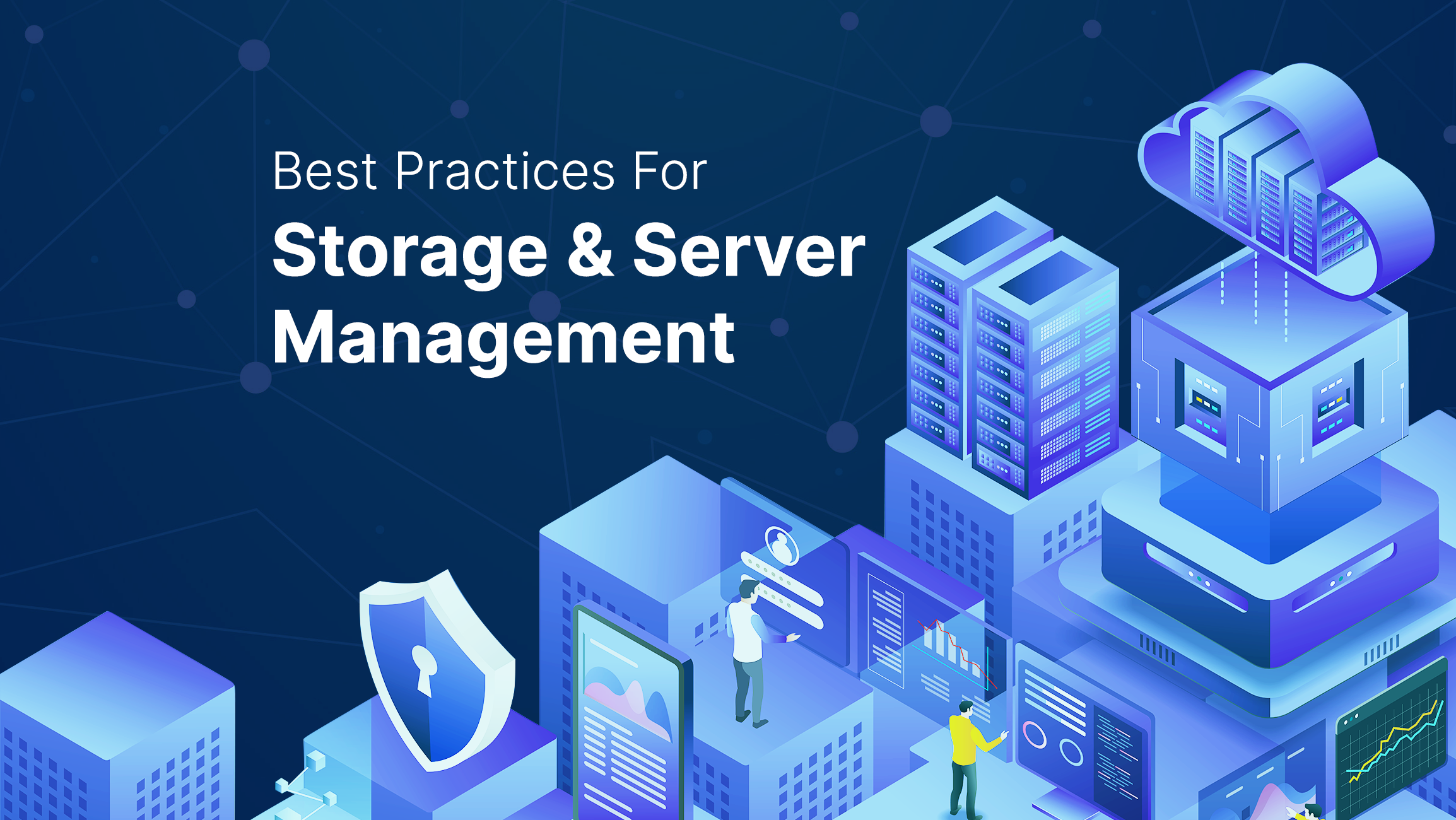Best Practices For Storage and Server Management

Storage and server management is essential to most IT duties, especially in this digital era, and every business uses IT. Utilizing best practices of server and storage management is necessary to ensure that IT systems are reliable, secure, and standards-compliant.
Read further to discover the techniques for improving storage and server management to reduce downtime and save expenses.
Server Management
Server management covers all the upkeep and supervision your servers need to run efficiently. Managing hardware, software, backups, and security is all a part of server management that will lead to the effectiveness and functionality of your server.
An efficient server management strategy’s main objectives are to:
- Reduce and ideally eliminate server lag and outages.
- Create safe server environments.
- Make sure servers can accommodate an organization’s changing needs.
These best practices can help you in managing your server more effectively:
- Regularly run a disk-checking system to check for errors, damaged sectors, and other potential issues
- Remind staff to do system checks on their own PCs.
- Run any proprietary software that your particular database might use.
- To prevent any concerns with overheating, keep the hardware clear of dust, especially around the ventilation and fan.
- Back up your EDM system on separate servers, keep original copies, and use an offsite location or service for data backup in case of natural disasters.
- Internal servers should be non-accessible to the outside world, computers and servers should be stored in locked areas, and an Uninterruptible Power Supply should be installed.
- Maintain a firewall storing managing protecting electronic records encryption cloud electronic DMS for the data server and any computers that utilize it. A firewall prevents unauthorized parties from accessing your network.
Storage Management
Storage management is the software and processes that improve the performance of data storage resources, allowing businesses to store more data, speed up data retrieval, prevent data loss, meet data retention requirements, and reduce IT expenses. It can be applied to primary, backup, or archived storage.
Here are some best storage management practices to help you get the most return on your storage investment.
- Design a practical storage approach in line with business objectives and requirements.
- Create policy and procedure on data archive, back-up, and disaster recovery.
- Keep an eye on storage performance metrics; when issues arise, they must be addressed in advance.
- Utilize methods such as compression, dedupe, and make thin provisions.
- Store the most important and regularly used information in high-performance storage while saving the other, less significant, and rarely accessed data in lower-cost storage.
- Using access restriction, auditing tools, and encryption to secure data and ensure compliance.
- Regularly test and upgrade storage hardware and software to meet current and future business requirements.
Summary
Server and storage management are essential for ensuring IT systems’ reliability, security, and compliance. To create safe environments, server management involves managing hardware, software, backups, and security. Storage management involves improving data storage resources to store more data, speed up data retrieval, prevent data loss, and reduce IT expenses.
CipherEx offers advanced data backup and recovery, storage optimization solutions, and comprehensive server management services to help businesses streamline their storage and server management operations, reducing downtime, preventing data loss, and saving costs.
Contact us today to learn more.





Add Your Comment